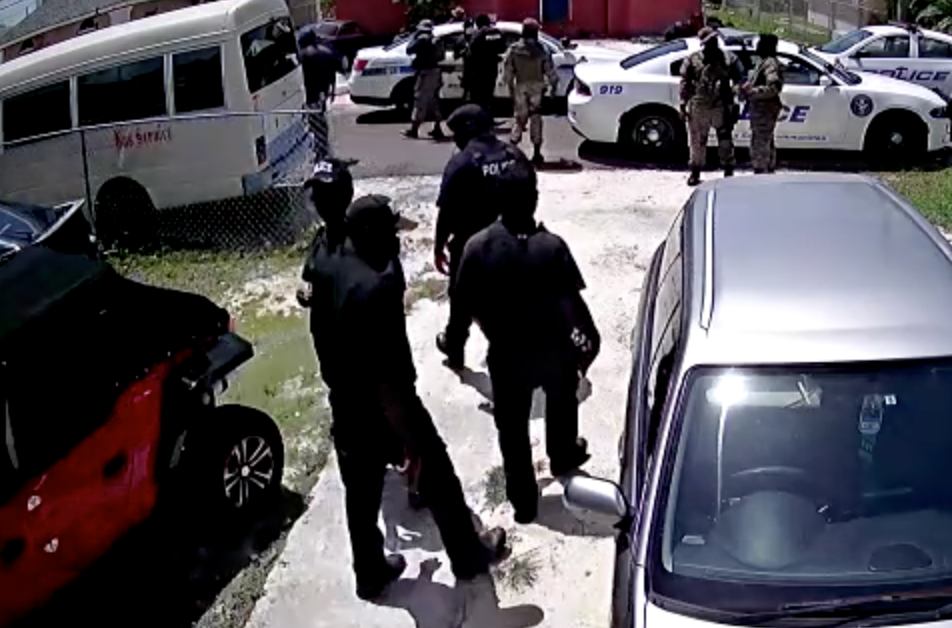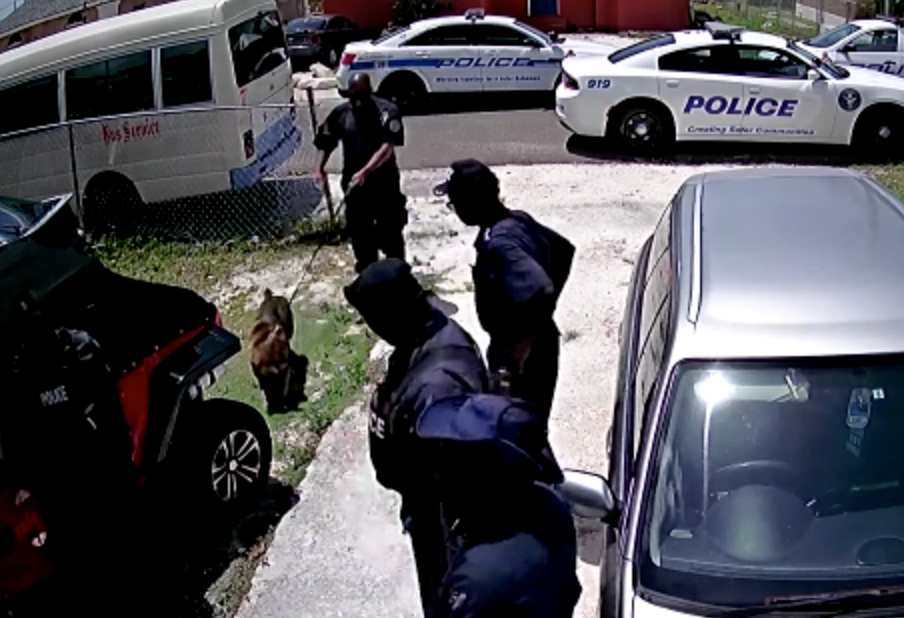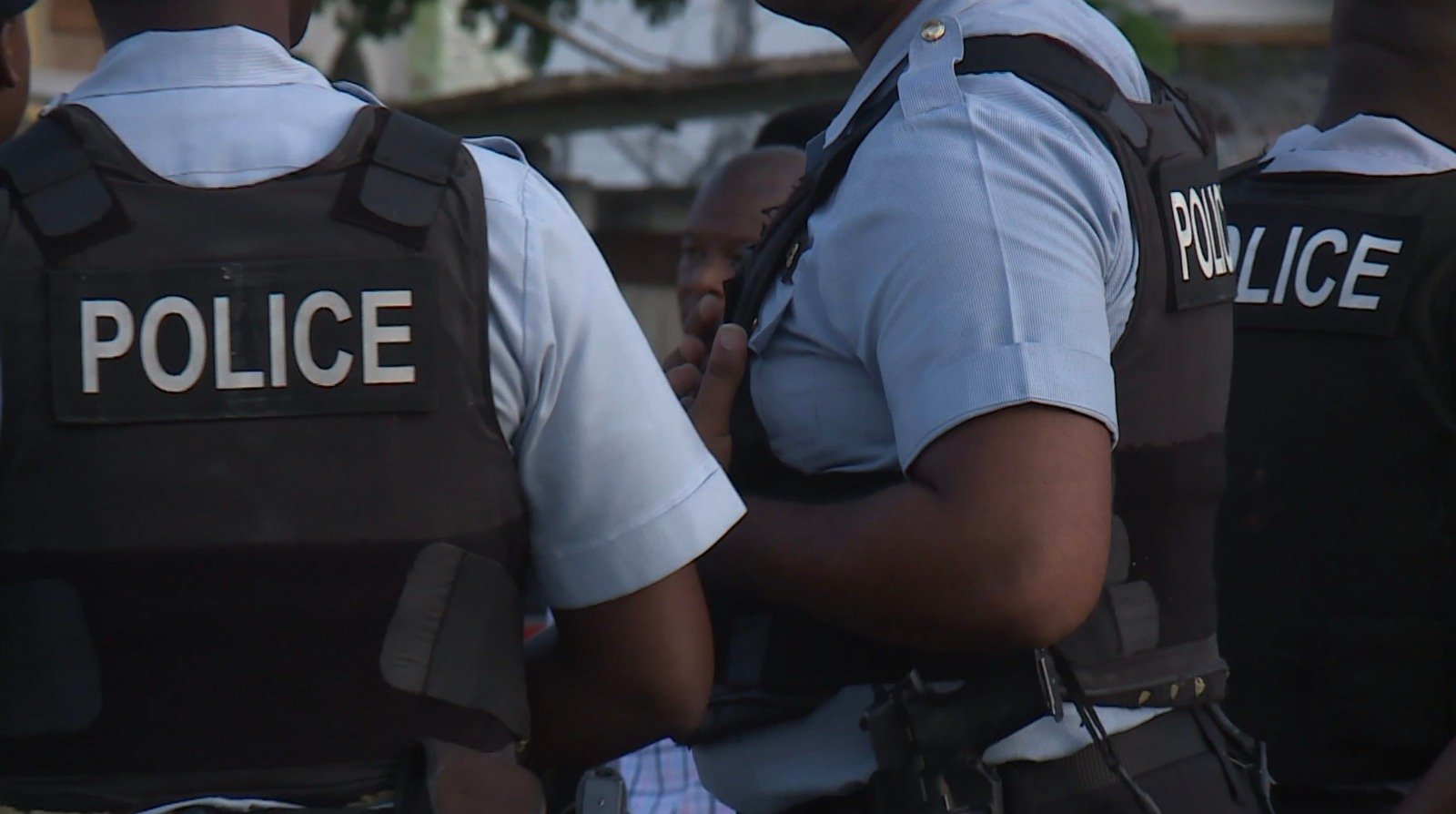NASSAU, BAHAMAS — A Bahamian man said he was forced to stop recording more than a dozen police officers as they entered his home to execute an apparent search warrant, which he claims was a case of mistaken identity.
An officer reportedly told him that police were already recording “for his safety”.
Video surveillance equipment attached to the exterior of the home captured the search.
According to William Davis, whose name has been changed at his request, officers brought a man in handcuffs to his front door and claimed to have a search warrant on the basis that the suspect claimed to live at the same address.

“It was just these officers standing there with a strange fellow and they brought him to my house claiming that he lived there, and even though me and the fellow told them that well, hey, ya’ll have the wrong house, they still insisted that they got the search warrant for my house, so that’s what they are going to do anyway,” he told Eyewitness News.
Davis said he was shown a document with his address and name on it, but could not determine if it had been signed by a magistrate.
He did not recognize the man and assured police that the home was his mother’s, which he had lived in for more than 20 years.
He said he told officers they had the wrong address.
“They said look here, just let us know where he lives and I told them I don’t know this guy, how could I tell you where he lives, if I don’t know him,” Davis recalled.
Davis said he was not permitted to put on trousers, and remained in his boxers throughout the search, which yielded nothing illegal.
According to Davis, the officers barged in, placed the handcuffed man on his couch and proceeded to search the home at length.
Footage showed the man in cuffs, officers entering the home after banding loudly, and a brief exchange, as well as an officer walking with a police dog into the home.

Davis attempted to record the interaction inside his home with his cellphone, capturing a few seconds with an officer in his bedroom, though only his feet can be seen in the frame.
“I am getting my ID. Boss, you are not allowed to touch my phone,” Davis tells the officer.
“Put it down. Put it down,” the officer responds.
But Davis explains: “This is for my safety.”
The officer, whose hand reaches toward the camera lens, retorts: “I am recording for your safety.”
The officer was wearing a body-worn camera, but Davis said he did not trust that it had been turned on.
He said officers searched the yard, perimeter of the home and uprooted his bedroom.
He said he was fearful of a reoccurrence, particularly with his name and address being placed in the system without cause, though he noted the officers said that would not be an issue after they completed their search.
“You don’t have any say as a law-abiding citizen,” Davis said.
“You could be following all the laws you want, but if you encounter an officer just having a bad day, he could place any charge on you as he feels because it’s like the court system is in favor of the police.”
He added: “And they didn’t even offer as little as an apology after all that.”
Ahead of Tuesday’s Cabinet meeting, Minister of National Security Wayne Munroe encouraged residents to record police officers engaging in misconduct to clamp down on what he called “bad actors” and “rogue officers” on the police force, who continue to damage public trust.
Munroe said residents ought to be discreet and “record it surreptitiously sometimes” and report the matter.
The minister was sent the footage of Davis’ interaction with police.
In response, he said: “That’s why I said surreptitiously. If you have a rogue officer and he sees you recording he can take your phone. Citizens have to be smart. Be bold is good, being wise is better.”






